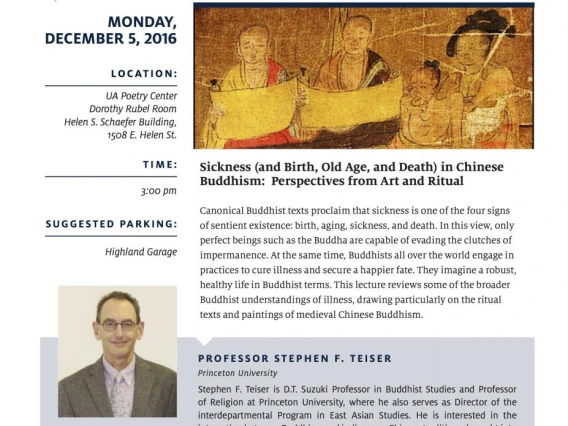
Dr. Stephen F. Teiser presented a talk, "Sickness in Chinese Buddhism: Perspectives from Art and Ritual," at the University of Arizona on December 5, 2016.
Abstract: Canonical Buddhist texts proclaim that sickness is one of the four signs of sentient existence: birth, aging, sickness, and death. In this view, only perfect beings such as the Buddha are capable of evading the clutches of impermanence. At the same time, Buddhists all over the world engage in practices to cure illness and secure a happier fate. They imagine a robust, healthy life in Buddhist terms. This lecture reviews some of the broader Buddhist understandings of illness, drawing particularly on the ritual texts and paintings of medieval Chinese Buddhism. This event was sponsored by the College of Humanities East Asian Studies.
Stephen F. Teiser is D.T. Suzuki Professor in Buddhist Studies and Professor of Religion at Princeton University, where he also serves as Director of the interdepartmental Program in East Asian Studies. He is interested in the interaction between Buddhism and indigenous Chinese traditions, brought into focus through the wealth of sūtras, non-canonical texts, and artistic evidence unearthed on the Silk Road.

